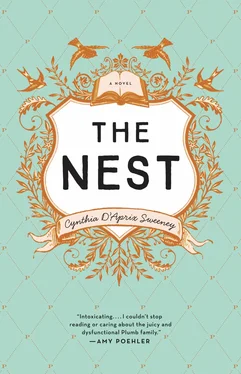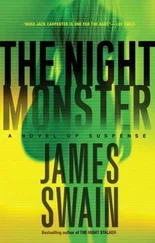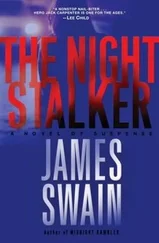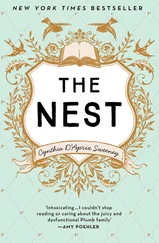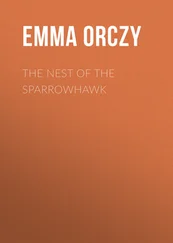He continued and his voice lost its usual sardonic edge. “Whatever happened — under the pines — it wasn’t about you or liking you or not liking you. That’s just crazy. I was seventeen. I didn’t want to have you around because I had a twenty-four-hour erection. I didn’t want my little sister there.”
“Gross.”
“Exactly. Think of it as a different form of brotherly love. Is that what you’ve been obsessing about because of Nora? Whether you have some kind of built-in gay repellent?”
“No. I’m just thinking. I want to do the right thing. I want to understand and be supportive, but I’m scared. I don’t know what she needs anymore, how she feels.”
“Yes, you do.”
“I don’t, Jack, I don’t . I never wanted a girl—”
“You do know,” he insisted. He stood and gathered the garbage from lunch and shoved it into an empty grocery bag. “You wish she weren’t gay,” he said, calmly.
“Yes. I’m sorry. I’m not saying that to be hurtful. I don’t want her life to be any harder than life already is. I don’t know how to smooth the way for this, make it easier. I don’t know what to say or what to think or how to behave and I don’t know who to talk to. Except you.”
Jack was staring out the window of the shop, tapping his fingers impatiently against a display case. “Walker wanted children,” he finally said.
“Really?”
“I was nervous about the whole thing. You know me. He wanted to adopt and all I could think about was how do we know what we’re getting? It seems like such a crapshoot. How does the kid know? Nobody signs up for two gay fathers. It seemed like such an easy thing to fuck up. Walker would always say I was overthinking. He would always say, ‘There’s a reason they call it giving custody . Parents are temporary custodians, keeping watch and offering love and trying to leave the child better than they found him. Do no harm .’ That’s what Walker would say anyway. I don’t know if it helps.”
“It helps a little,” she said.
“Just another example of my selfishness, according to Walker as he walked out the door.”
“Not wanting to adopt?”
“Yes.”
Melody thought for a minute. Why was it so easy to wound the people you loved the most? She pointed to an art deco bar cart a few feet away with crystal bottles filled with a dark liquid. “Is that real alcohol?” she said.
“It most certainly is,” Jack said. “Are you suggesting a drink? Because if you are, you are my favorite person in New York right now.”
“Yes,” she said.
Jack filled half their plastic cups with scotch and they sat and sipped in a companionable silence for a few minutes.
“I don’t think you were being selfish,” Melody said.
“About adopting?”
“Yes,” she said. “I think you were being thoughtful and cautious and honestly airing your concerns. Having kids isn’t easy.”
“I know!”
“Don’t get me wrong; it’s great and I think you and Walker would have been great parents — if you both wanted it. But it’s not for everyone.” She finished her scotch and poured a little more. She was building some alcohol-fueled momentum. “ Do no harm .” She laughed. “It sounds so, so easy, but do you know what else is easy? Doing harm! Accidentally doing harm is distressingly easy. I don’t think you were being selfish. I think you were being realistic.”
Jack watched Melody, amused. He wasn’t surprised she was a cheap date in the booze department, but what she said also resonated with him — and made him feel better. “Tell that to Walker,” Jack said, joking.
“I’ll tell him.” Melody straightened. “Where is he? He thinks being a parent is so easy, such a cakewalk? Get him on the phone. I’ll tell Mr. Attorney just how easy it is. Where is he?”
“I don’t know, let’s see.” Jack took out his phone and she was abashed to see him open the Stalkerville app, the one she’d talked him into using. “Let’s take a peek,” he said, waiting for it to load. “Here we go. He’s at work and, look!” He pressed the “call” button on his phone and held it up for Melody to see as the screen said “Walker” and the phone rang and rang. He banged the phone onto the counter. Melody picked it up. “What are you doing?” Jack said.
“I’m deleting this. If you want to tell Walker something, you should go find him. This thing?” She raised the phone and shook it a little. “It’s not telling you what you need to know. It’s one tiny part of the story; it’s bullshit.” She typed in a few commands, and the app was gone. Jack was looking past her lowered head and out the window, watching the pedestrians walking down the street on a heart-wrenchingly perfect spring day. He’d never felt so alone in his entire life. Handing him back his phone, Melody realized that Jack’s scattered, slightly unfocused gaze, his too-long hair, and his wrinkled shirt — it all added up to heartbreak. He wasn’t mad or blithe; he was empty. She sat with him for a while, wishing she could erase the look on his face, a world of comeuppance and regret.
“Mel?” he finally said. “Nora just needs to know you love her as much and exactly as you did before. She needs to know she’s not alone.”
“I know,” Melody said.
It was the day before Mother’s Day and Stephanie was still wearing her down vest. May in New York City was fickle. On Friday she hadn’t needed any kind of overcoat, but Saturday dawned cloudy and cold, more autumnal than springlike. Still, there were bunches of pink and purple and blue sweet peas at the farmers’ market and she splurged and bought four bouquets for herself. She’d scatter them around the house and their heady scent would permeate every room.
Vinnie and Matilda were coming over to her house for lunch. The day when she’d answered Leo’s phone, she’d quickly ended the call with Matilda, saying Leo was out . She didn’t forget about the call — or the poor girl who’d been in the car with Leo — but there was so much else for her to contend with; weeks later, she’d called back, out of duty more than anything else.
Stephanie knew she wasn’t responsible for Leo’s mess, but as Matilda nervously and somewhat disjointedly explained why she was calling, Stephanie realized she might be able to help. One of her favorite clients, Olivia Russell, was a hugely successful journalist who had written extensively about artificial limbs, especially the challenges facing Gulf War veterans. Olivia had lost a leg herself when she was young. She knew everyone and how to work every program and now ran a nonprofit that helped amputees navigate the expensive and complicated world of artificial limbs. Stephanie offered to broker an introduction. Matilda asked if she could bring her friend Vinnie. So they were all coming for lunch: Vinnie, Matilda, and Olivia, who’d already agreed to help Matilda as a favor to Stephanie. Then Stephanie’s job would be done.
“Happy Mother’s Day,” the farmer who took her money said. She assumed he was a farmer anyway; he was scruffy and already sun weathered. His fingers were thick and blunt and dirt stained, and he was wearing a bright blue baseball cap that said SHEPHERD FARMS ORGANIC in orange script on the front. It took Stephanie a minute to realize he was addressing her.
“Oh, thanks,” she said. With her height, she was carrying the pregnancy well but at six months her bulge was prominent, unmistakable.
“You have other kids at home?”
“Nope. First and last,” she said, employing the emotionally neutered tone that she’d learned usually shut down baby conversation, shifting her bags of spring potatoes and asparagus and strawberries into the crook of one elbow so she could carry the vibrant flowers in one hand, like a spring bride.
Читать дальше
Конец ознакомительного отрывка
Купить книгу
